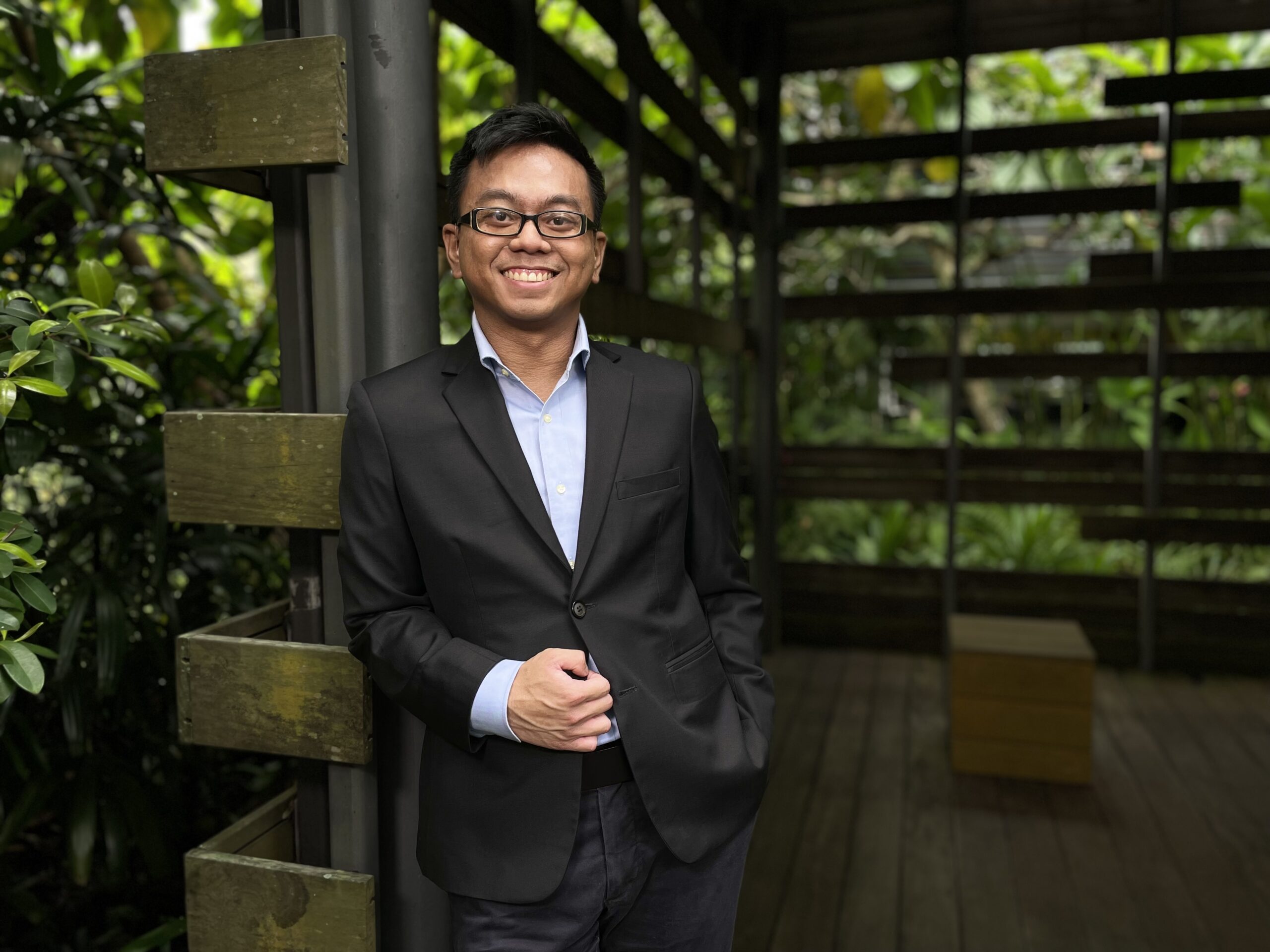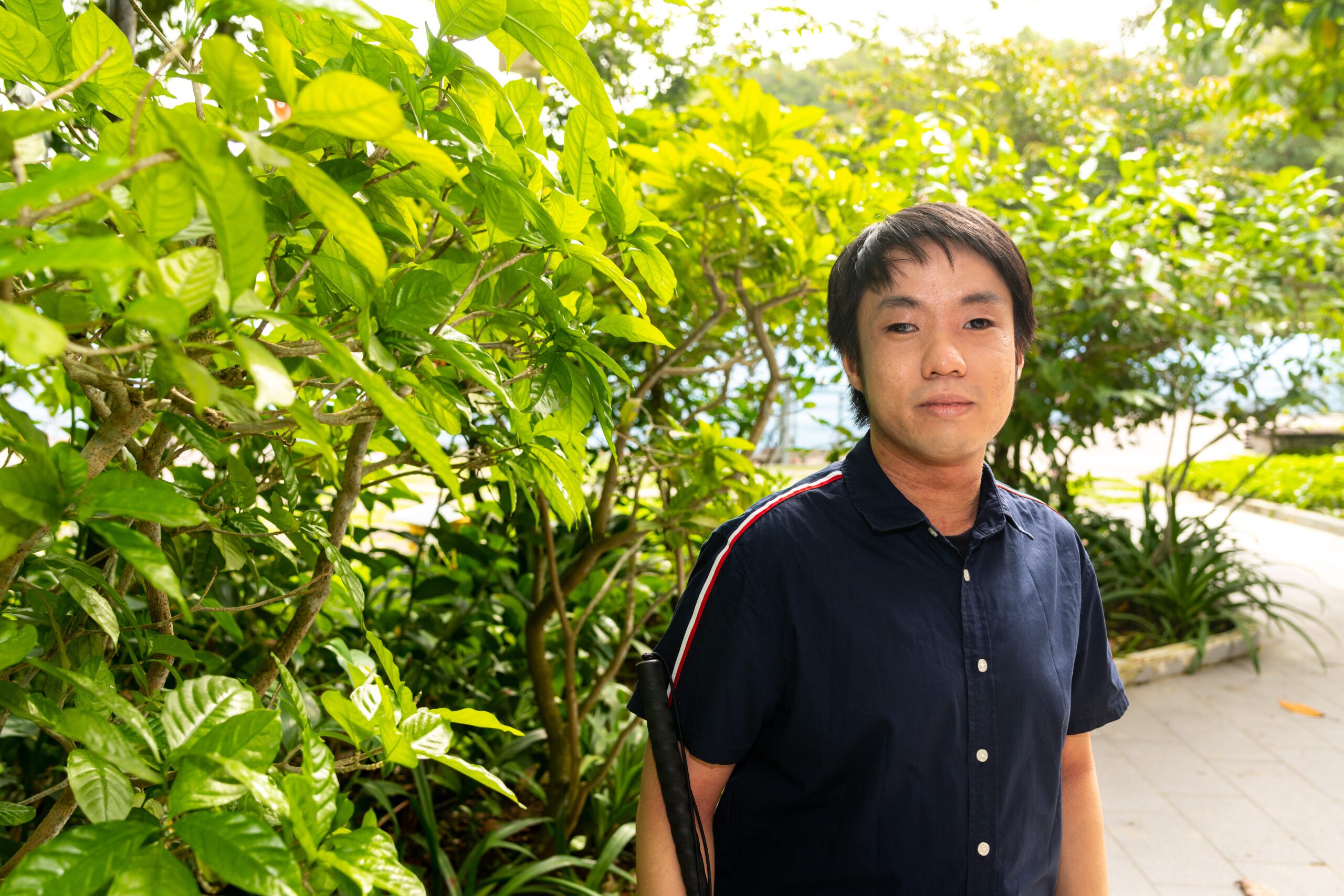Prior to setting up your own business, Therapy Kidz, in 2019, you worked at an international school and then as a special education facilitator at a preschool. What made you decide to take that leap of faith and set up your own business?
During my time at the two schools, I had the opportunity to speak to many parents whose children were diagnosed with different needs such as autism, global development delay and cerebral palsy. One of their pain points is finances — they struggle to find a suitable yet affordable therapy programme. At Therapy Kidz, we make our own materials, and the therapists travel to the students’ houses to make behaviour therapy more accessible as well as create a safe environment for them.
Also, for parents who are dealing with such a diagnosis, they are at a loss to know what to do. Many of them are in denial. Because of my own motherhood experience dealing with grief and anxiety, I am able to put myself in their shoes. I am after all, above everything else, a mother first. I wanted to set up a place where I could not only help autistic children but also work with the parents to help them gain knowledge and confidence to manage their children’s learning and behaviours. In the special education industry, many times the relationships between schools and parents are rather transactional. A common disappointment parents have is when their children can perform a certain task in school, but not at home. There is this lack of communication and sharing of knowledge — the parents cannot seek the therapists for advice after hours. At Therapy Kidz, the line of communication is always open. All my therapists and I are in a group chat with the parents, so they can share their achievements, and have someone to talk to in times of need.
What was the experience that gave you grief and anxiety?
When my eldest son was still a newborn, he kept failing his audiometry test. He seemed to not be able to hear with his left ear. Initially, the doctors said that it was quite common for amniotic fluid to build up in the ear, which affects the hearing. After a month, they ran another test, which he failed again. The next review would be in a year. As first-time parents, my husband and I were naturally anxious. We were also quite angry as the doctors were not properly explaining to us our son’s condition. Each consultation was very abrupt. That one year of anticipation was torturous. I started questioning myself, wondering if it was something I ate during pregnancy. I had this itch on my belly, and I wondered if I had used too much steroid cream. I wondered if I had pressed too hard on his left ear and damaged it unknowingly. I had all these questions in me, and I blamed myself for his condition. Guilt ate away at me. We were also in denial. Because he could still hear with his right ear, he could respond to sounds and songs. My husband thought there was nothing wrong with him; we held on to the hope that it was a misdiagnosis.
Finally, that one-year review came. All the questions I had poured out of me during the consultation, and I asked the doctor if it was something I did. He said: ‘No, he’s born like that.’ I just felt like crying at that moment. It was such a relief. Because I am a behaviour therapist by training, instead of dwelling on ‘oh no, my child is different’, I sprang right into action. My first thought was that he’d probably have speech delay, so I’d have to work on his speech.
How is he now?
If you look at him, you won’t know that he has hearing loss. He does have difficulty with phonics — with ‘l’ sounds, he makes ‘y’ sounds instead. He also has difficulty hearing in a noisy environment. Because he has unilateral hearing loss, his ability to identify the source of the sound is impaired. His coping mechanism is just to shut down completely. Other than that, he is a healthy child.
What would you say to other parents who are dealing with the initial shock that their children may have special needs?
Go for assessments. Do not be afraid to go for a diagnosis. Once you get a diagnosis, you know what to do and you can plan for the future, in terms of financial matters and your child’s schooling. With a diagnosis, you can get access to many services that your child will need, and you can also apply for subsidises if you are a Singaporean.
Being a mother, how has that helped you run Therapy Kidz better?
I empathise with other parents and I understand why they do things a certain way. When I ask parents if they give their children screen time, there is always this look of guilt on their faces. Research has shown that screen time can be damaging to a child because their brains are not ready for the overload of stimulation. For me, I feel that while the child is receiving a lot of information, he is not practising or applying that knowledge, and so it is unhelpful.
Most parents know this, so they feel guilty. They think they are bad parents for granting screen time. But as a mother myself, I understand the need for the parents to have break times themselves. Instead of forcing them to take away screen time altogether (which is unrealistic), I help them to come up with a plan to split their children’s one hour of screen time into several sessions throughout the day. Perhaps they can let their children enjoy screen time as they go about their household chores. Some parents need screen time during meal preparation. It gives them an interval of freedom where they don’t have to keep their eyes intently on their children.
At Therapy Kidz, what other ways do you provide support to the children?
We also have shadow teachers who will sit together with the children in the classrooms. They are responsible for teaching the children with special needs how to follow through routines, and they model their strategies after the classroom teacher’s.
Kids being kids, would fellow students tease that particular child for needing extra attention or help?
That is the beauty of children — they are innocent. Once they understand that their friend requires additional support, most of them are okay — they usually don’t even see their friend as different. Pre-schoolers in particular love having an extra adult around, because they are showered with extra attention as well. The shadow teacher is also present to help the child with special needs build friendships and navigate social situations.
The work you do is very meaningful. What is your job satisfaction?
To see the children graduate from our programme. I feel a sense of achievement when I see them progressing, building skills that they didn’t have initially. Some of them, during the first sessions, don’t even utter a word. And over time, they start to share more; they even become cheeky. A few months in, some parents will provide feedback that it has become easier to change routines. That is progress. The children will also show that they can learn without need for much support. That is when I’ll tell the parents that perhaps we can reduce the number of weekly sessions, or even stop altogether. But we are always here for them if they need to come in for refresher sessions.
And do you have any goals you’d like to achieve?
It’s a pipe dream for now but I’m saving up in hopes of opening my own school that supports inclusion. The enrolment will be a mix of mainstream students and students with special needs. One of the things I believe in is that every child deserves a chance to experience and shine. Schools provide ample ground for the building of social skills — when children with special needs receive such exposure, they learn how to manage themselves and function in a social environment. They learn to be around people who are more able than they. They become more aware of how their stimming affects others. They also learn how to cope in a world where not everyone is going to be nice to them. Children with special needs are very innocent, and they are forgiving. When someone they have a rapport with says something mean, they usually won’t hold a grudge.
And mainstream students can benefit from being around peers with special needs. They become more socially and emotionally aware. They learn to be helpful, to be more compassionate. They tend to mature faster.
It will then be an example to other schools that building an inclusive environment can be achieved; we just have to be open about it. There is a lot of misconception about children with special needs — mainstream schools say that they cannot admit them because they don’t have the resources to handle them. They think that a lot of them come with behavioural problems, and they don’t have trained teachers up to the task of managing them. But it is possible, especially if the child is already attending early intervention programmes. The teachers just need to observe and find out possible triggers and reasons as to why the child is stimming. If it is not disruptive, they can simply ignore their behaviours. To promote emotion regulation, they can provide a safe, calming space, practise strategies and offer them tools such as stress balls and music. Sometimes, it can be as simple as bringing them for a toilet or movement break. Give the child time to adapt to the new environment. In fact, I’m sure the teachers will grow to like them a lot.
A Singapore where every school is inclusive — that sounds lovely. I hope you will be able to achieve your goal.
I hope so too.
To get in touch with Eileen, please visit https://therapykidz.com.sg/.


